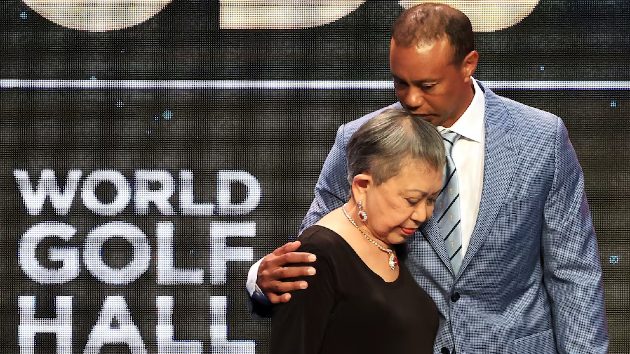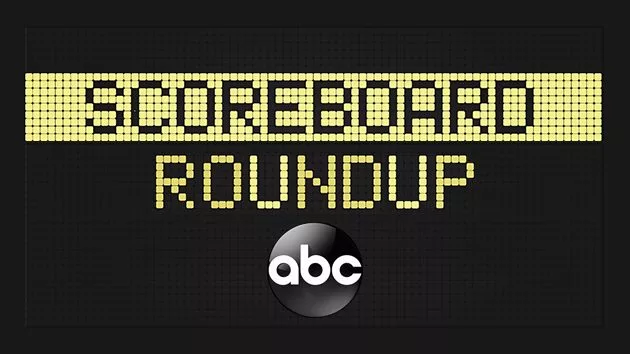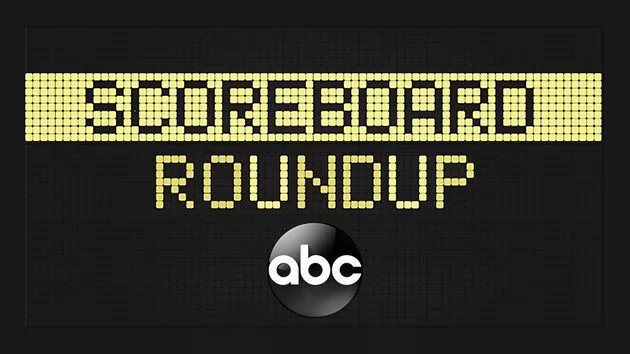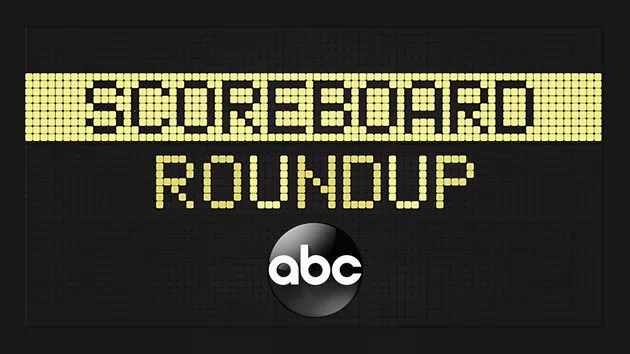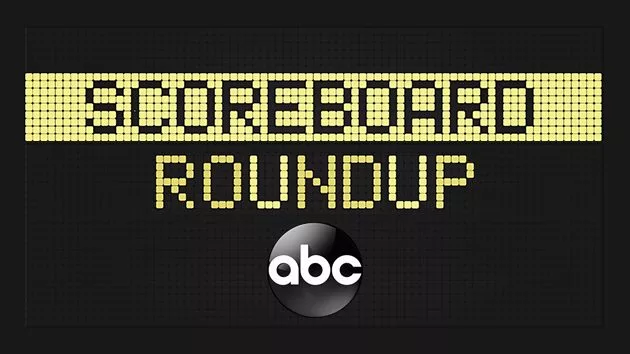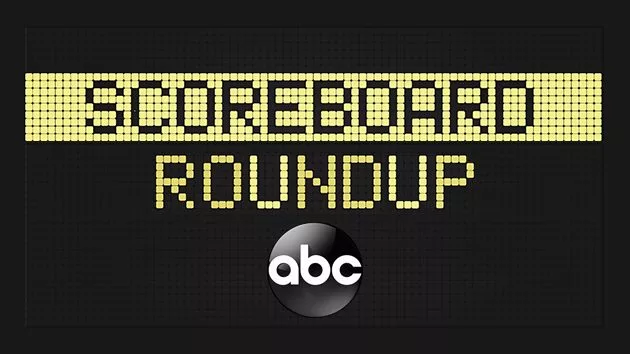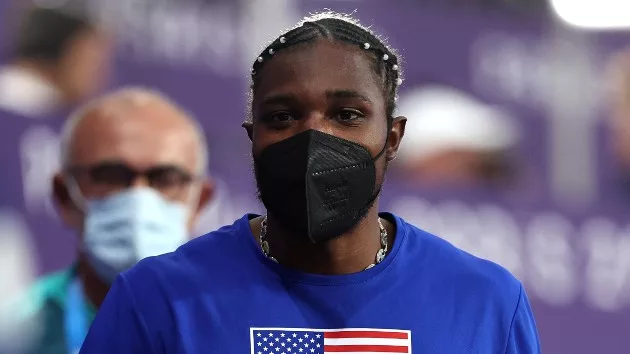
(LONDON) — Noah Lyles’ characteristically exuberant walkout for Thursday’s 200-meter final gave little indication that the American sprinter was among the dozens of athletes who have tested positive for COVID or other respiratory illnesses.
But within minutes, the track star was being pushed from the stadium in a wheelchair, in visible discomfort following his bronze medal-winning performance.
“I believe this will be the end of my 2024 Olympics,” Lyles wrote soon after on his Instagram page.
Lyles is the latest athlete to test positive for COVID-19 at an Olympic Games that has almost entirely done away with the strict health guidance that shaped the Tokyo 2020 games, which itself was delayed by a year due to the pandemic.
In Paris, there are no prohibitions on competitors or spectators who have tested positive for the virus.
The Paris Games is being lauded as an Olympic return to form, the City of Light’s venues packed with excited spectators — among them athletes’ friends and families, many of whom were unable to travel to Tokyo.
But the collective joy is coming at a cost.
British swimmer Adam Peaty, Australian swimmers Lani Pallister and Zac Stubblety-Cook, and German decathlete Manuel Eitel are among at least 40 athletes that had tested positive for COVID-19 or other respiratory illnesses as of Tuesday, according to the World Health Organization’s event-based surveillance system, which collates reports from media and other verified sources.
The Paris Games’ 182-page media handbook contains no mention of COVID-19. The event’s online guidance for spectators directs visitors to the Interior Ministry’s website, which notes that the nation now exempts all travelers from any COVID-related “formalities prior to entry into France.”
A Paris 2024 spokesperson told ABC News: “We are closely monitoring the health situation in conjunction with the Ministry of Health.”
“We regularly remind athletes, and all stakeholders at the Games, of the best practices to follow in the event of respiratory symptoms: wear a mask in the presence of others, limit contact and wash your hands regularly with soap and water or hydroalcoholic gel,” the spokesperson said.
“All National Olympic Committees and International Federations are also free to implement additional measures for their athletes or competitions,” the spokesperson added.
COVID cases are rising in the U.S. and elsewhere, an uptick at least partially attributed to the new “FLiRT” variation of the virus.
Long COVID — an umbrella term referring to a raft of chronic conditions related to COVID infection — also still poses a significant problem. The Centers for Disease Control and Prevention reported in March that 6.8% of American adults said they were living with long COVID symptoms, which vary in severity and can include difficulty concentrating, recurring headaches, changes in memory, and persistent fatigue.
Lyles’ high-profile struggles on Thursday have prompted fresh questions for organizers and athletes, not least as the American sprinter had been hugging fellow athletes despite knowing of his positive test.
USA Track & Field told ABC News in a statement on Friday that it and the United States Olympic & Paralympic Committee “swiftly enacted all necessary protocols” to prioritize Lyles’ health following his positive COVID test, as well as the “wellbeing of our team, and the safety of fellow competitors.”
“Our primary commitment is to ensure the safety of Team USA athletes while upholding their right to compete,” it added. “After a thorough medical evaluation, Noah chose to compete tonight. We respect his decision and will continue to monitor his condition closely.”
“As an organization, we are rigorously adhering to CDC, USOPC, and IOC guidelines for respiratory illnesses to prevent the spread of illness among team members, safeguarding their health and performance,” it said.
Kenneth Bednarek, the American who won the silver medal in the 200-meter contest, downplayed the danger, telling reporters at a press conference after the race: “I don’t think I was put at risk at all.”
“I take care of my body,” Bednarek added. “So when it comes to getting sick, that’s rare for me. So, I mean, when I found out it wasn’t that big of a deal.”
Copyright © 2024, ABC Audio. All rights reserved.



